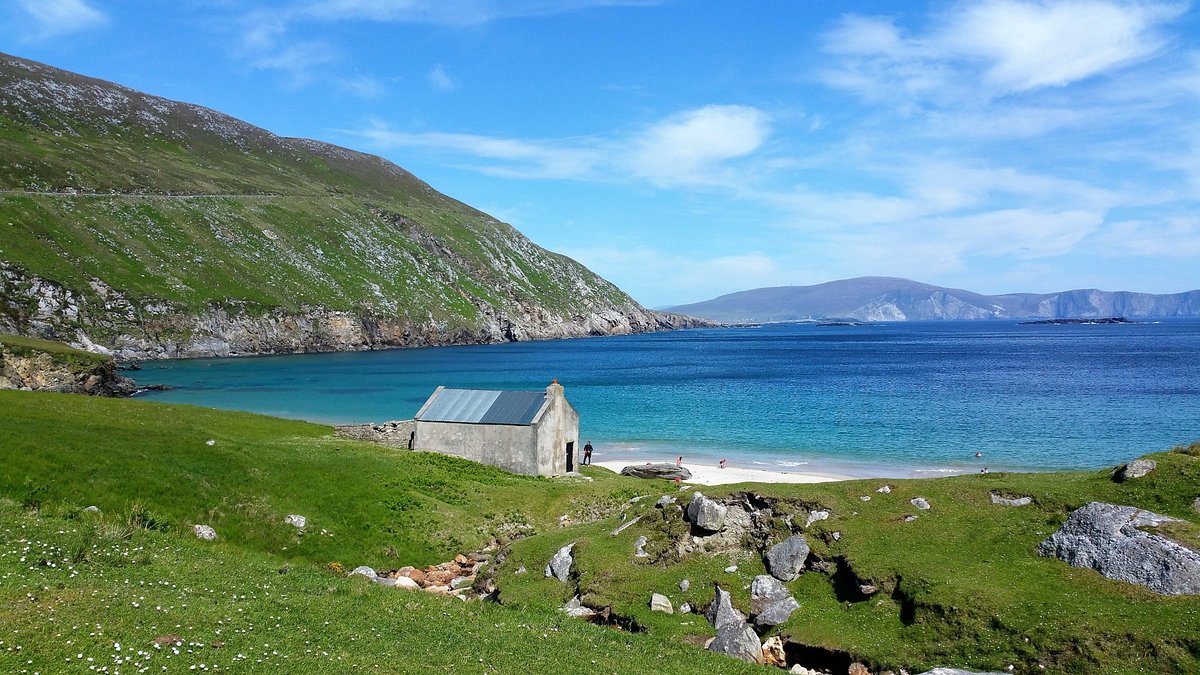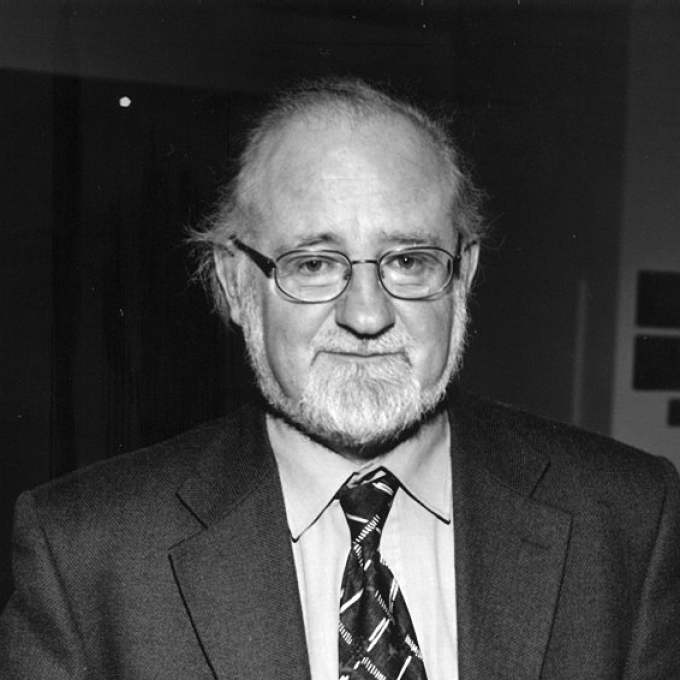John F. Deane is a poet well known in his Ireland, but little in Italy, where he wrote the wonderful poem “From Summer in Umbria”.
Irish independence
Before talking about John F. Deane and the poem From Summer in Umbria, it is useful to remember how significant Irish literature has been. 1921 is a significant year, Ireland became independent, but even more remarkable is the fact that it was already reborn thanks to its poets and writers. W.B. Yeats, Oscar Wilde, James Joyce, P. Kavanagh have redeemed Ireland, with their thoughts and works, after centuries of humiliation, famine and oceanic migrations.
The older T. Moore, who grew up in a family with a revolutionary passion, and Jane Francesca Elgee, an independence activist, traced the first furrows on the terrain of freedom. I do not want to forget S. Beckett – one of the most influential writers of the 20th century, whose masterpiece is Waiting for Godot – Augusta Gregory¬Ý – whose work contributed significantly to the definition of modern Irish identity – and C.S. Lewis, known as one of the fathers of fantasy fiction.

Me, poetry and Irish literature
Given that often in life I have followed Oscar Wilde’s saying ¬´Give your absence to those who do not value your presence¬ª I cannot help but remember some important passages from Irish literature: W.B. Yeats: ¬´When you are old, grey, full of sleepy and lolling by the fire, take this book and read it calmly, dream of the soft look of your eyes of the past, their background of shadow…”. Then Beckett: ¬´What would I ever do without this world without a face or questions, where being lasts only an instant in which each instant turns into the void in the oblivion of having been without this wave, where finally body and shadow will sink together, what would I ever do without this silent abyss of whispers furiously longing for help, love without this sky that rises on the dust of its ballast” and the last sentence of the poignant poem dedicated to the terrible years of famine by J. F. Elgee, The Famine Year: ¬´Our children swoon before us, and we cannot give them bread¬ª.
John F. Deane
John F. Deane was born on Achill Island in County Mayio, Ireland, in 1943. He is one of the most talented and influential poets in that windswept land, and his talent as a writer as well as his commitment to poetry have won him awards also throughout Europe such as the prestigious Chavalier de l’ordre des arts in France. In Italy he is not very well known although he received the Laudomia Bonanni International Award. As a young man he almost found the path to the priesthood, but then took the path of secular society, starting his work as a teacher while simultaneously developing his ability in the cloisters of the imagination.
In 1979, at the age of 36, he founded Poetry Ireland and Poetry Ireland Review. In 1985 he founded Dedalus Press, a leading poetry publisher.Between 1996 and the end of the 2000s he was Secretary and then President of the European Academy of Poetry. Member of Aosdana (Irish Academy of Artists) he lives in Dublin.

His poetry
From an article in the Irish Time of 14 August 2023 (A priest writes: John F. Deane helped rid me of the guilt of Irish Catholicism) it is clear that for many older Irish people who grew up in rural areas, the relationship with their religious beliefs. Tired of all the commandments and the threats of eternal damnation, many have stopped believing or rather have looked for a more significant image of God. Many have found it in the poetry of John F. Deane centered on a belief «exuberantly open to the world » (exuberantly open to the world) and far from the fenced-in faith. Indeed, John F. Deane began to question the image of a distant and judgmental God and his love for the natural world became one of the greatest openings to the divine presence. At the heart of his vision and works is indeed the belief that the divine manifests itself materially through mountains, seas, rivers, essentially the rugged landscape of his native County Mayo.
From summer in Umbria
Translating a poem from one language to another is always very complex. The difficulties encountered are undeniable and the transposition of concepts is impossible. There is a service translation and a translation faithful to the original resulting from in-depth research. The first English translation theorists maintained that poetry should only be translated by poets and on this point I completely agree.
Translating a poem also requires the author’s permission. I tried to contact John F. Deane at the Aosdana and Potry Ireland offices to get more information on his stay in Umbria, but so far I have had no response. Having said this, I will limit myself to reporting some passages where his presence in our Region is most evident and the brightness of the work that John F. Deane reveals in his lines. The poem begins with a prayer from a woman, who describes it irreverently, who recommends herself to God: ¬´O Lord, lead my soul out from the prison of its flesh¬ª. After a witty description of the place that surrounds him, a courtyard, complete with pheasants, rhubarb, gooseberries, chicken dung and a child with torn canvas trousers, he names the green heart of Italy, Saint Francis and the wolf of Gubbio: ¬´Summer in Umbria; over the glowing towns the swift are tiny flecks darling on the retina of the sky; they stitch the air tight with their cries with the mastery of their flights […]¬ª. Clear is the description of the bright cities dominated by swifts, described as dots in the retina of the sky, which combine cries with the mastery of their flight. ¬´Francis had been elegant, dainty, debonair […] he caught a glimpse of God waiting in a radiance beyond sight, […] Perhaps the wolf of Gubbio is the rage of death in the flesh¬ª, [.. .] ¬´Francis begged: Lord cast your light into the darkness of my heart¬ª. The description of an elegant and casual Saint Francis contrasts with the figure of the wolf as the fury of death, but an invocation to God to throw light into his heart reassures this passage.
The poet John F. Deane continues the description of this stay, when in the room upstairs, he prayed to his guardian angel and heard his mother’s voice in the distance: ¬´I prayed or angel of God my guardian…Mother’ s voice was a far murmuring…”.
The poem essentially ends with: ¬´Somewhere between the drag of flesh and the hope of resurrection my poems happen…”. In essence, John F. Deane wants to underline how far his poems are from the old religious canons, seeking a balance between temptation and the hope of resurrection.
I conclude by saying that John F. Deane must have greatly appreciated his stays in Umbria because even in The Coffin Master and Other Stories he refers to our Region when he writes: ¬´He closed his eyes again, gratefully, and he was sliding down a long , dark cute, it was gentle, and when he came out on the other end he was not surprised to find himself in Umbria once more, the same landscape, filled now with vineyards, with fields of sunflowers, with trees…”.
Domenico Arcangeli
Latest posts by Domenico Arcangeli (see all)
- Caterina Franceschi Ferrucci: «Let me study or nothing will happen!» - May 13, 2025
- Cuppano from Montefalco, leader of the Black Bands - January 10, 2025
- Petrone da Vallo: Fierce Rebel or Lively Spokesman for Rights? - October 22, 2024

